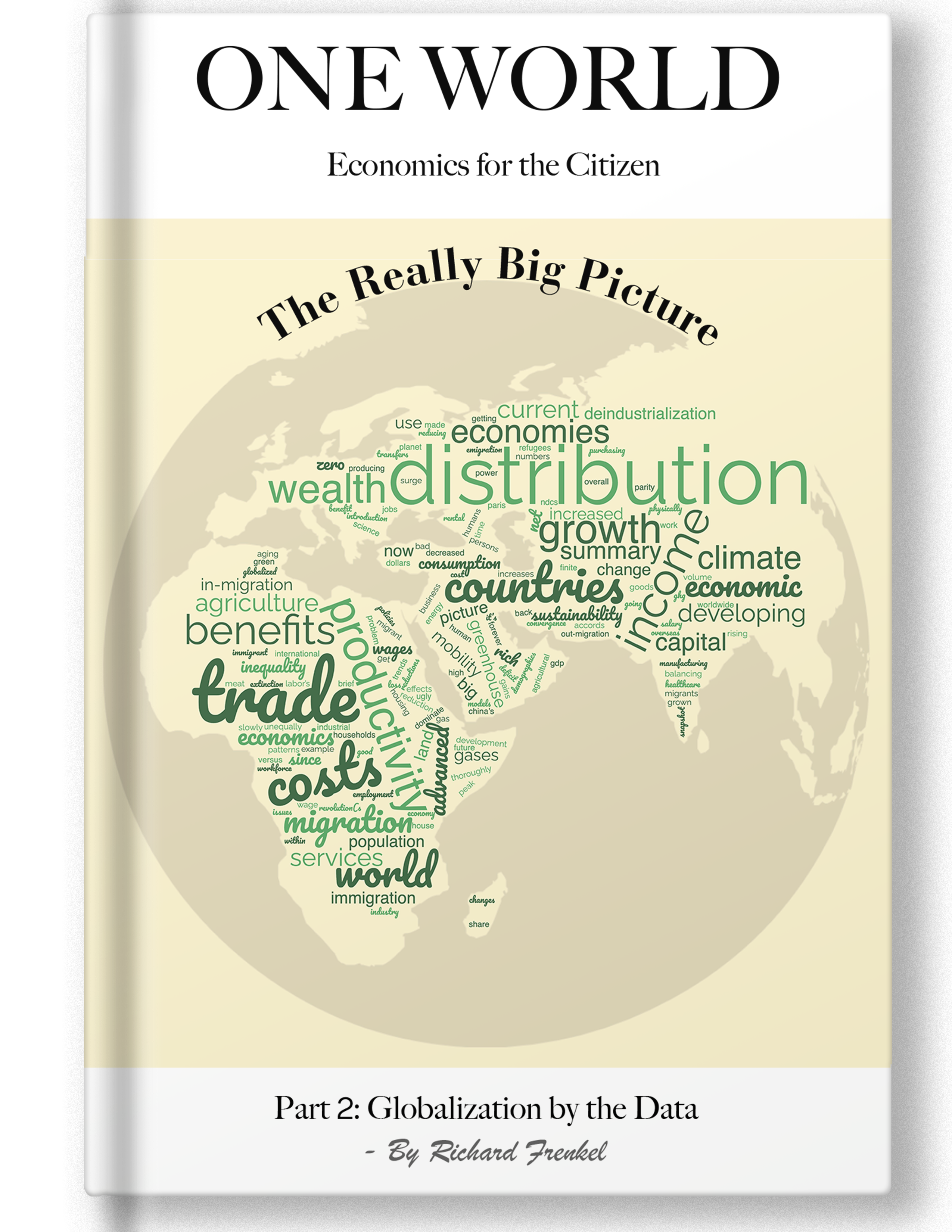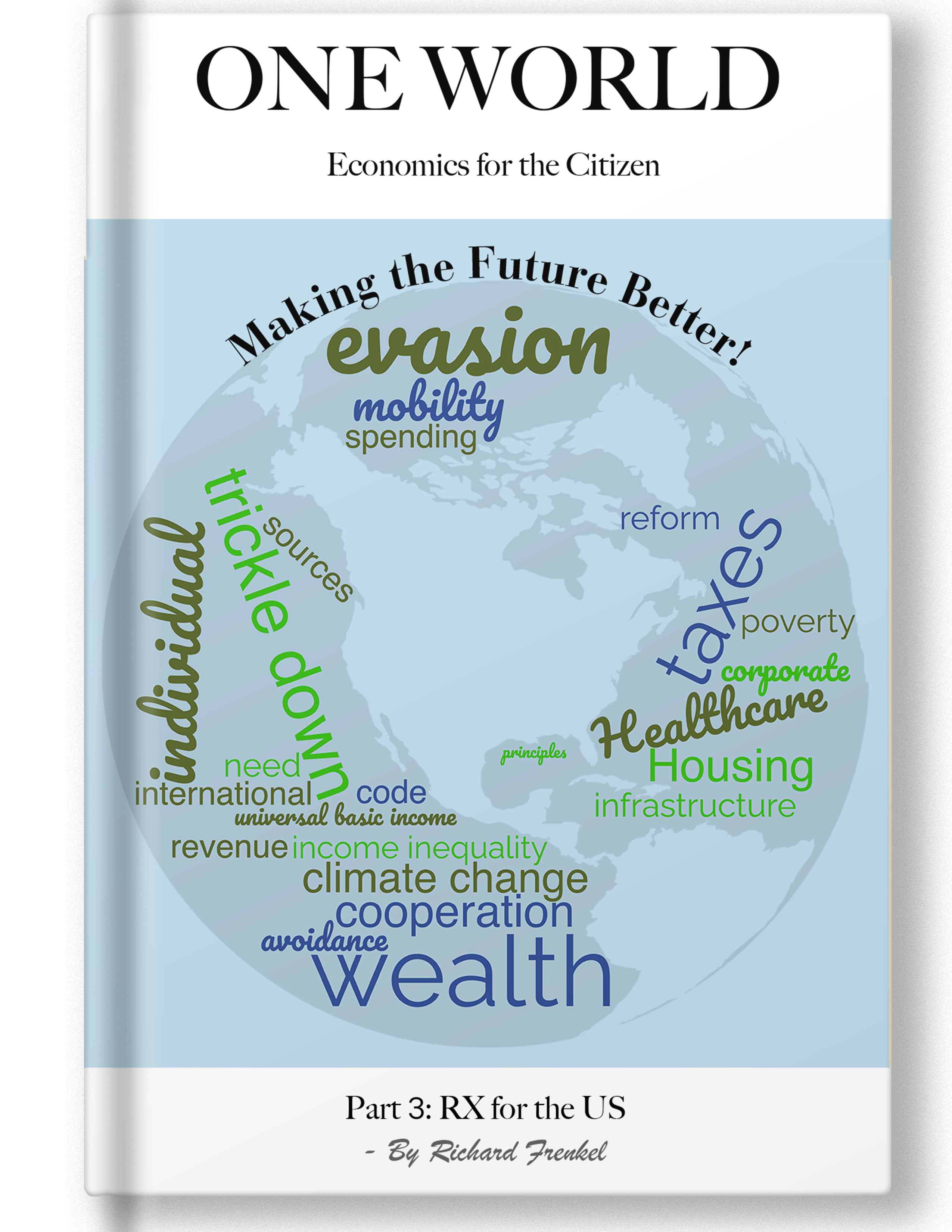Markets have been around since the earliest days of human civilization, having existed in ancient Babylonia, Assyria, Phoenicia, Israel, Greece, […]
Read MoreEconomic Principles
The basic concepts of economics are not hard to understand because they (mostly) agree with common sense, but together they create a powerful framework for comprehension. Almost all economists across the political spectrum subscribe to the same basic economic concepts even though they may argue about priorities, policy, data and data interpretation, and many detailed economic mechanisms. This primer covers the basics of “free market” economics with emphasis on how productivity changes, trade, and immigration impact workers. No higher math is required.
Content of Economic Principles
Free Markets, Supply and Demand
How Pricing Works in a Free Market: Supply and Demand
In a free-market buyers looking for a product, be it a bushel of corn or an industrial robot, shop around […]
Read MoreBenefits of an Ideal Free Market
The benefit of an ideal free market is that it is extremely efficient at allocating resources. We have briefly mentioned […]
Read MoreFree Market Caveats
So, if the free market is so great at allocating resources and meeting the needs of consumers, why doesn’t the […]
Read MoreFactors of Production
Factors of Production
When you make (almost) anything you need materials such as wheat flour, wood, steel, or plastic, which in turn come […]
Read MoreNatural Resources
Natural resources (aka raw materials) are all the materials and capacities which are provided by nature such as land, minerals […]
Read MoreOther Factors of Production
Recently some economists have posited “entrepreneurship” as a separate factor of production. The entrepreneur is thought of as orchestrating the […]
Read MoreSubstitution of Factors
In economics it is assumed that one can, to an extent, substitute one factor for another. So, when one buys […]
Read MoreBox: Raising the Minimum Wage, Jobs & Utility
Let’s look at how a rise in the minimum wage affects the economy under ideal market conditions. To review, in […]
Read MoreProductivity
Productivity in Economics
Productivity in economics refers to the amount of labor and other inputs that are required to produce a good or […]
Read MoreMeasuring Productivity
Businesses are always striving to minimize the cost of producing a given level of output. When designing a factory, for […]
Read MoreProductivity Summary
To recap, labor productivity refers to the value of output (say dollars’ worth of cars) produced when compared to the […]
Read MoreProductivity
The world we live in is incredibly complex. Sometimes it helps to create an imaginary world where we can think […]
Read MoreInternational Trade
International Trade
While most people understand the benefits of trade on a free market within a country, free international trade is not […]
Read MoreComparative Advantage
Consider two countries, we’ll call them Rich and Poor. Rich is fully industrialized and has, on average, twice the productivity […]
Read MoreCan Trade Hurt Wages?
The assessment of trade just given indicates that international trade is always a good thing, that it just extends the […]
Read MoreBalance of Trade
We have made the blanket assertion that free trade, in currency if not utility (think overall happiness, we’ll get to […]
Read MoreMigration
Immigration
In the prior section we looked at how productivity and trade affect employment. Both cause changes in employment between sectors […]
Read MoreCapitalism, Socialism and All That Jazz
Capitalism, Socialism and All That Jazz
This overview of economics has implicitly assumed a market economy with private ownership and government regulation, a pretty common model. […]
Read MoreThe Free Market and Utility / Happiness
The Free Market and Utility / Happiness
In the economic primer, we looked at a textbook description of modern economic theory. Much of it is common sense, […]
Read MoreThe Role of Government in the Economy
The Role of Government in the Economy
We have noted that since early times, governments have issued standard coinage and set standard weights and measures. Private property […]
Read More

